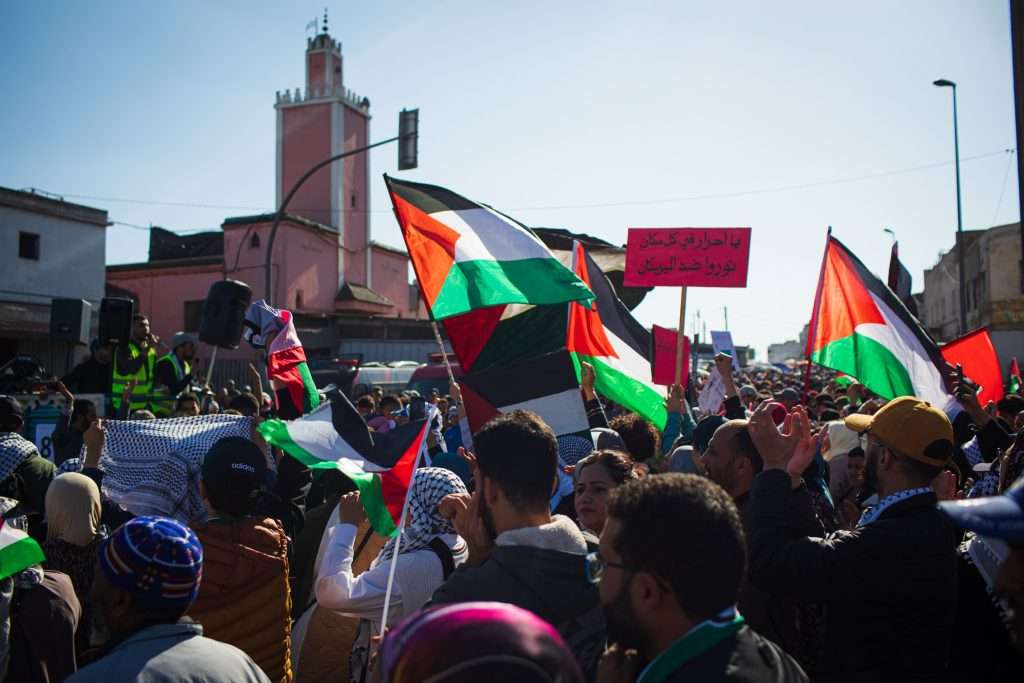What’s behind Israeli – Moroccan relations?

Since the Hamas attacks on Israel on October 7, 2023, and the subsequent Israeli offensive in Gaza, Morocco has doubled down on its cooperation with Israel. It is a decision that places it at odds with much of the Arab world and the international community as well as from growing opposition at home. Even as Western allies like the UK, France and Canada condemn Israels military actions and humanitarian blockades, Morocco has remained steadfast in its support for the Israeli government.
As an Arab nation, Morocco’s alignment with Israel amid the ongoing war in Gaza has surprised many observers. After signing a normalisation agreement with Israel and the US in 2020, Morocco has sought to develop its relationship with Israel and since October 7th Rabat has chosen Realpolitik over pan-Arab unity or moral concerns of parts of society. It is a move that underscores its ambitions to become North Africa’s dominant economic and political power. In order to prevent Iran gaining influence in the region via their support of the Polisario Front, a political group representing the native Sahrawi people in the Western Sahara.
But whilst the government remains resolute, the domestic response has been growingly increasingly discontent. Speaking exclusively to Maghrebi, writer and former journalist for Spanish outlets El País and El Mundo Ignacio Cembrero said that “Demonstrations of solidarity with Gaza and denunciations of Morocco’s relations with Israel have been constant and massive, on some weekends, up to 350,000 people have gathered in Rabat or Casablanca. The political parties remain silent, with the exception of the Justice and Development Party and the small left-wing Via Democratica. The main organiser of the demonstrations is the Islamist movement Justice and Charity, which, while technically illegal, enjoys a degree of tolerance.”
However, despite such shows of public opposition, the Moroccan government has been driven by geopolitical opportunities rather than domestic concerns and senses that it has an opportunity to become the economic and political hegemony in North Africa and potentially extend its influence across the continent. As resident Senior Fellow for North Africa at the Atlantic Council’s Rafik Hariri Center and Middle East programs Sarah Zaiimi, said in an exclusive interview with Maghrebi that: “By normalising its relations with Israel, Morocco is pursuing two objectives: a close military and security relationship that will strengthen its arms race with Algeria and its low-intensity war with the Polisario Front; and to gain even more confidence and support from the US. It expects the superpower to help it secure recognition of its sovereignty over Western Sahara.”
When asked whether cooperation between Israel and Morocco has increased since October 7th, Sarah Zaiimi responded: “Absolutely. On a public level, you might get the impression that Morocco has toned down civil activities like visits to Israel, but on the security and intelligence front, ties have never been closer.” Zaiimi explained that the Polisario Front sought to draw parallels between their struggle and that of the Palestinian people following the October 7th attacks, a move that Zaiimi claims prompted the Moroccan government to deepen its security and intelligence cooperation with Israel.
The Western Sahara issue lies at the heart of Morocco’s foreign policy. Controlling this territory – rich in resources and strategically critical – is seen as vital to containing Iranian influence and securing national stability. While many viewed Morocco’s 2020 normalisation deal with Israel as a transactional agreement brokered by Donald Trump, Zaiimi suggests that recognition of Moroccan sovereignty in exchange for diplomatic ties was far more strategic: “Sources in the US and Moroccan government have told me that it wasn’t a transactional agreement. It was actually a strategic realignment to counter a common enemy. Half of Morocco is still a disputed territory and siding with pan-Arabism or the Middle East did not serve Morocco much. Morocco is becoming more confident siding with Israel from a pragmatic point of view because of a common enemy, Iran.”
Still, Zaiimi insists that pragmatic alignment does not have to preclude moral accountability: “Normalising with Israel doesn’t give them carte blanche. Morocco does not have to be all in with Israel and has been critical of Israel, calling for a two-state solution.” But, despite this the Moroccan government has not been vocal in their opposition to Israel’s offensive in Gaza even after the UN said that “Israel’s warfare in Gaza is consistent with the characteristics of genocide.”
It is this fact that has led critics to argue Rabat has not gone far enough, particularly as Israeli operations in Gaza escalate. The Moroccan public’s outrage has grown recently after it was revealed that Morocco hosted the IDF’s Golani Brigade. The Golani Brigade has been accused of atrocities in Gaza, including the killing of aid workers and paramedics but has now been hosted by Morocco during the African Lion military exercises. According to Cembrero he couldn’t “imagine any other Arab country that has relations with Israel agreeing to anything similar”. The Moroccan government has yet to comment on the fact that they have played host to the brigade however there has been outrage from many media outlets.
For many, the presence of the Golani Brigade on Moroccan soil was a red line but one that the government in Rabat had crossed due to their ongoing geopolitical ambitions and reluctance to contest the wishes of the US or Israel. While Rabat walks a tightrope between domestic discontent and international ambition, it appears willing to weather criticism in pursuit of a long-term strategic vision: securing the Western Sahara, countering Iran, and emerging as a continental power. Despite Israel continuing to launch offensives against the civilian population of Gaza, Morocco continues to cooperate with Israel, putting Realpolitik first.
Ignacio Cembrero/ Sarah Zaiimi/ The New Arab/ Maghrebi
Want to chase the pulse of North Africa?
Subscribe to receive our FREE weekly PDF magazine













